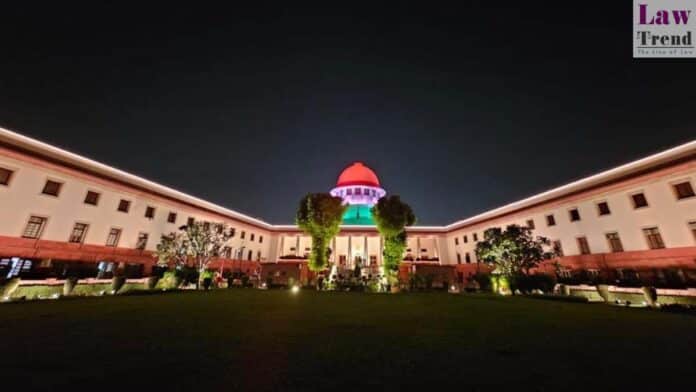The Supreme Court on Wednesday issued a stern reprimand to the Maharashtra government for its prolonged delays and “non-serious” approach in determining compensation for a landowner whose property was unlawfully used over six decades ago. Justices BR Gavai, Prashant Mishra, and KV Viswanathan ordered Rajesh Kumar, the additional chief secretary of the forest and revenue department, to appear in court personally on September 9 due to his “contemptuous remarks” in an affidavit.
The top court’s frustration was evident as it criticized the state for its procrastination in recalculating the owed compensation. The bench expressed disbelief over the government’s affidavit, which it viewed as a tactic to delay the payment process. “When the state has sought time specifically to re-calculate the compensation, then it should have been done,” the justices noted, indicating a lapse in commitment from the state authorities.
In an extraordinary move, the court also threatened to halt the “Ladli Bahin” scheme, a recent initiative by the state government aimed at supporting women financially, if the compensation is not re-evaluated promptly. This scheme involves a transfer of Rs 1,500 monthly to eligible women to assist those in financial need.

During the hearing, the court was informed that a new calculation estimated the compensation at approximately Rs 48.65 crore. However, this figure is based on 1989 circle rates, a point of contention as the justices argued that current land values should be considered to ensure fair compensation.
The state has also offered to allot land measuring 24 acres and 38 gunthas to the affected landowner as part of a resolution, which the court noted is within the municipal limits of the Pune Municipal Corporation and adjacent to previously allotted land.
The apex court has scheduled an appointment for the landowner to survey the offered land on August 30 to decide if it could be a suitable replacement for monetary compensation.
This case highlights ongoing legal battles over land rights in India and the challenges citizens face when state entities occupy private land without timely or appropriate compensation.







